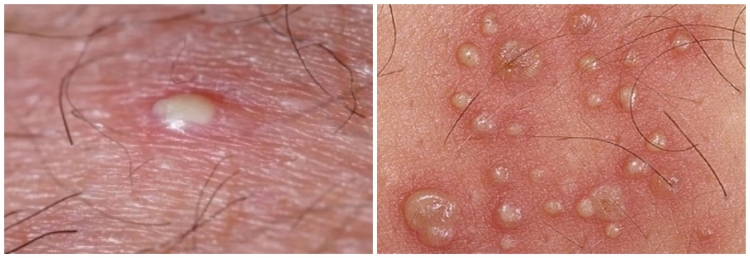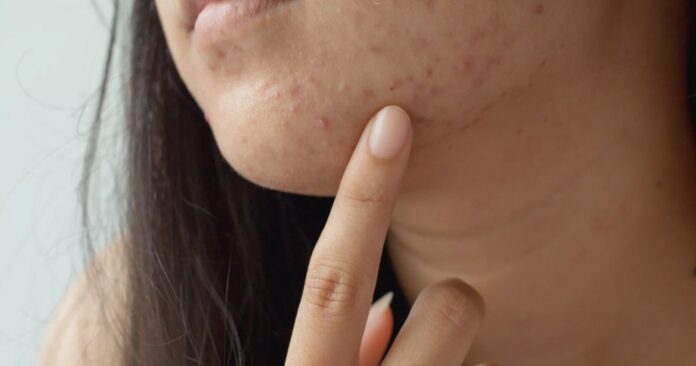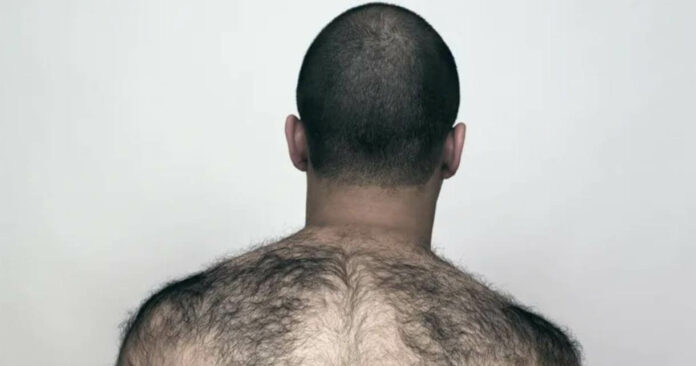Ingrown hair and herpes are two of the most common conditions that cause small, painful red bumps on the skin. One is the harmless consequence of improper hair removal, while the other is a serious medical-attention-worthy infection.
Moreover, it is caused by different factors; one can be transmitted from one person to another while another does not. It makes the differentiation between them important. However, the stigma associated with the assumption that herpes is a highly contagious sexually transmitted illness makes people keep it to themselves and suffer rather than seek medical care.
So, let us determine the causes, signs, and symptoms of ingrown hair vs. herpes to make a clear diagnosis, prevent and treat such bumps on the skin, and explain why medical care for herpes is essential.
Table of Contents:
- Part 1: What is Ingrown Hair?
- Part 2: What is Herpes?
- Part 3: Differentiating Ingrown Hair from Herpes
- Part 4: Treatment and Management
- Part 5: Prevention and Risk Reduction
-
Part 6: When to See the Doctor
Part 1: What is Ingrown Hair?
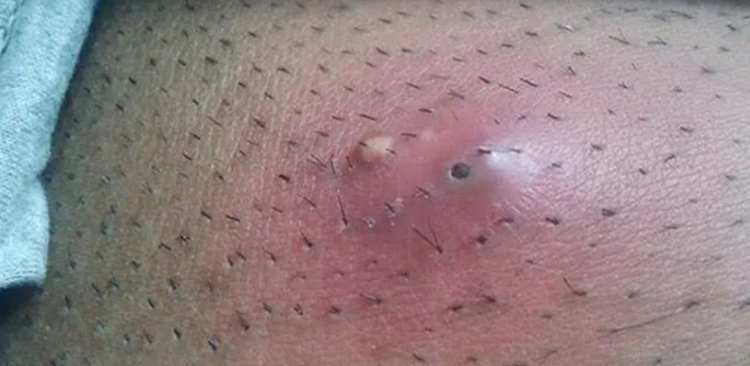 Definition
Definition
Ingrown hairs are small to large bumps that appear on the skin after hair removal. They are red bumps with a tiny black dot in the center, which shows a broken hair strand curled under the skin.
Causes
The most common causes of ingrown hair are listed as
- Hair strand broken in mid-way by waxing
- Improper shaving
- Incomplete epilation
- Removing coarse and thick hair without proper skin preparation
Signs and Symptoms
If the skin bump has the following features, you can identify it as an ingrown hair
- A small singular pimple-like bump
- Presence of fluid in the pustule
- Having visible twisted hair in the center
- Darkening of the surrounding skin
- Appearing after hair removal
- Skin irritation, itching, and swelling
- Mild to moderate pain in the bump
Risk Factors
Although ingrown hair is a common occurrence, let us see why some people have more ingrown hair than others
- Having thick and coarse hair
- Having wavy or curly hair that tends to twist under the skin
- Removing hair without proper exfoliation, cleansing, and moisturization
Longterm Effects and Potential Complications
Long-term effects of ingrown hair are not common as they resolve easily. Moreover, ingrown hair can lead to the following complications,
- Post-inflammtory hyperpigmentation
- Depressed scars
- Compromise in skin barrier
- Infections of hair follicles and the skin
- White pus in the bump
Part 2: What is Herpes?
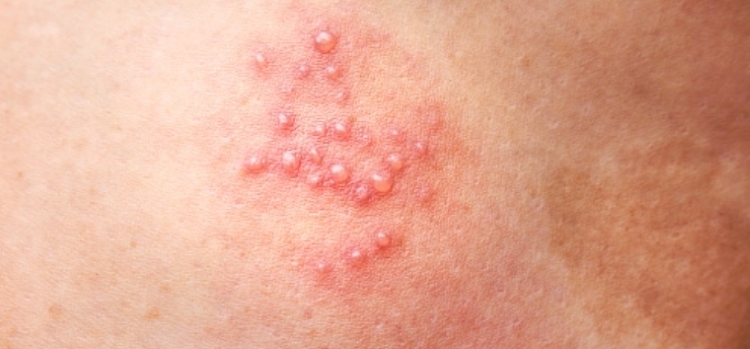 Definition
Definition
Herpes is a transmittable viral infection that forms painful or nearly painless blisters on the skin’s surface. There are mainly two types of herpes virus, HSV-1 and HSV-2. The former is associated with the oral cavity, while the latter is related to genital areas.
Causes
Herpes is an infection that can be caused by the following factors
- Contact with body fluids including saliva, semen, and urine
- Physical contact with an infected person by kissing, touching, oral, vaginal, or anal intercourse
Signs and Symptoms
Although herpes is confused with ingrown hair, as it can be an asymptomatic infection, the signs and symptoms below can help you distinguish them.
- Fever, which is a constitutional symptom of infection
- Painful tender blisters
- Physical weakness and fatigue
- Itching, irritation
- Cold sores
- Discharge from genitalia
- Lymphadenopathy
Risk Factors
The risk factors of herpes infection are given below
- Unprotected intercourse where you use no physical barrier
- Several sexual partners
- Close contact with an infected person
- Intercourse with an HSV-positive person or carrier
Longterm Effects and Potential Complications
Herpes infection is difficult to treat as it is a viral infection and doctors can only offer symptomatic care. So, the long-term effects and complications of herpes are given as.
- Risk of transmission of STI to your sexual partner
- Recurrent appearance of painful warts
- Pain and flare-ups
- Herpes breakouts
- Eye infection, meningitis, and encephalitis
Part 3: Differentiating Ingrown Hair from Herpes
Below are the main differentiating points of herpes vs. ingrown hair. This is how to tell if herpes is sore vs. an ingrown hair.
| Parameter | Herpes | Ingrown Hair |
| Symptoms | Painful blister, ulcers, or cold sore | Painful bump with a little dark dot and flaky surface skin |
| Location | Mostly in the mouth and genital areas | This can occur anywhere hair is removed improperly |
| Pattern of Occurance | Occurs as multiple small nodules in clusters | Occur as single nodules |
| Pain and Discomfort | Tender and painful | Painful and uncomfortable |
| Associated Symptoms and Additional Indicators | Fever, flu-like symptoms, history of fluid exchange, enlarged lymph nodes, headache, burning micturition. | History of hair removal, irritation, and redness |
In addition to these features, compare photos of herpes and ingrown hair to see how both look.
Part 4: Treatment and Management
Ingrown Hair
As ingrown hair is not a serious concern, you can treat and manage it simply by taking the following measures
Home Remedies and Self-Care Techniques
Leave it as it is and allow time to heal it. During this time, do not try to shave, wax, or epilate the hair. Also, do not try to poke it or remove the hair with a tweezer. Maintain cleanliness of the skin as well.
To treat it faster, try gentle scrubs, a warm compress, or an anti-inflammatory topical cream. Furthermore, if you have deep ingrown hair, try the remedies mentioned in the Best Ways to remove a deep ingrown hair.
Professional Treatments and Interventions
If your ingrown hair is not being treated by general measures, it is time to remove it professionally. A healthcare professional can help you remove the ingrown hair with sterile tweezers and a scalpel to remove it and drain the accumulated pus.
In addition, oral or topical steroids, antibiotics, and retinoids can help.
Herpes
Home remedies and self-prescribed medicines cannot treat herpes. Below is how herpes can be treated.
Symptomatic Treatment,
First of all, you have to treat the pain and fever caused by herpes. For this, take over-the-counter painkillers like paracetamol and ibuprofen.
Antiviral Medicines
Antiviral medicines famciclovir, acyclovir, and valacyclovir help keep the Herpes virus in check even though it cannot be completely eradicated or killed.
You can take anti-viral medicines in both topical and oral form.
Reducing Transmission and Outbreaks
Prevention is the best way to reduce the transmission of herpes infection and its outbreaks. Moreover, you can reduce the intensity of infection by controlling your popping of herpes warts, scratching the affected area, and maintaining hygiene.
Part 5: Prevention and Risk Reduction
 Ingrown Hair
Ingrown Hair
Prevention is the best cure, right? So, it is better to take the following measures to prevent ingrown hair in the first place.
Proper Hair Removal Techniques
Ingrown hair is most commonly caused by shaving. So, follow the measures explained in how to prevent ingrown hair after shaving. However, when you epilate or wax an unwanted body, try using the proper technique so that hair is removed from the roots rather than breaking at the skin’s level. Of course, you can also choose laser hair removal at home to avoid ingrown hair.
Exfoliation and Skincare
Ingrown hair occurs when you treat the skin roughly and remove hair haphazardly. So, exfoliate the skin once or twice a week, hydrate it every day, and protect it from the sun as well to prevent ingrown hair. You can use exfoliating gloves as explained in how to use exfoliating gloves on the face and legs.
Herpes
Here is how you can prevent herpes infection.
Safe Sex
No matter if you are taking oral contraceptive pills or not, always use condoms and physical barrier methods so that there is no transmission through body secretions.
Also, do not have intercourse when you or your partner is having an active infection, reduce the number of sexual partners, and do not come in close contact with people having cold sores.
Open Communication
Having a herpes infection might look scary but it can be controlled and its transmission can be prevented as well. So, communicate openly with your partner about such STIs and reduce outbreaks.
Part 6: When to See the Doctor
The signs and symptoms of the disease can help diagnose ingrown hair vs. herpes. So, if you are sure you only have ingrown hair with no infection, there is no need to consult a professional.
However, if you experience tender warts, fever, body aches, and similar signs, it is better to consult a doctor as soon as possible and get a proper treatment. Moroever, the presence of bumps in genital areas requires medical attention.
Conclusion
Herpes is a viral infection that presents as painful and tender blisters, while ingrown hair is just incompletely removed hair strands that appear as red bumps on the skin.
The causes, diagnosis, treatment, prevention, and severity of both are different. This article explains these differences. We also encourage you to consult a doctor if you suspect a herpes infection and always communicate clearly with your partner about such diseases.

 By Viktoria
By Viktoria

